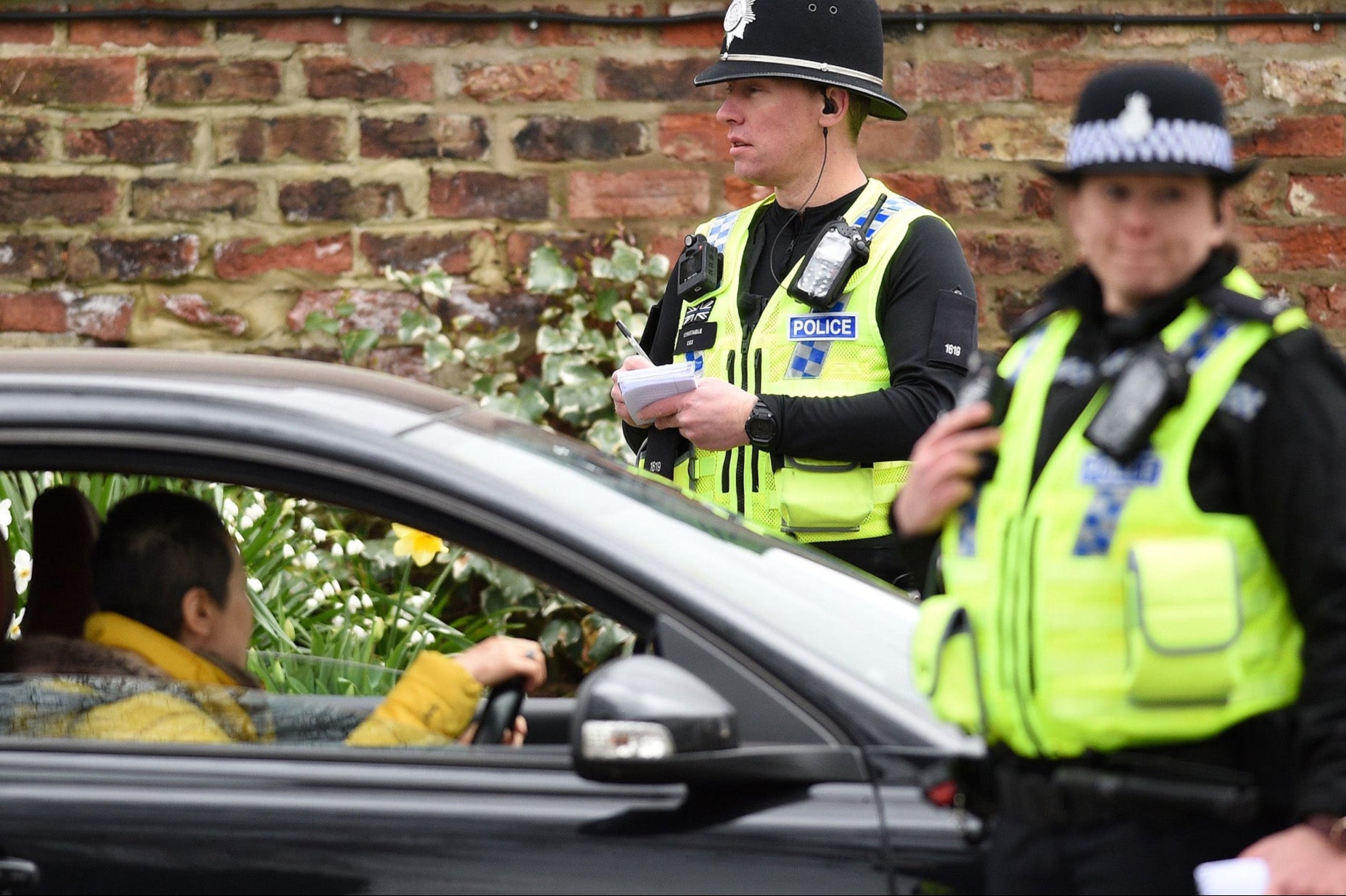Why is it still so difficult to challenge Covid fines?
There is no formal process to challenge a fine other than refusing to pay and risking prosecution, Lizzie Dearden writes

The furore over an attempt to fine two women £200 after they travelled to a Derbyshire reservoir for a walk has renewed scrutiny of the UK’s coronavirus laws.
Officers were forced to withdraw the penalties after a public backlash, and a “clarification” that the women had not broken the law.
Police leaders stress that the mistake was an isolated incident, but it is one that illustrates issues that have been the subject of warnings throughout the pandemic.
Despite repeated calls from campaigners, there is no way to challenge a coronavirus fine other than refusing to pay and risking prosecution.
A review by the Crown Prosecution Service (CPS) has so far uncovered 116 wrongful prosecutions under the Health Protection Regulations, which have been used since March to enforce lockdowns, tiers and restrictions on movement and gatherings.
The figure is 12 per cent of all prosecutions under the law. If the same proportion was true of the total number of fines issued in England and Wales – 32,329 – almost 3,900 would be unlawful.
Another 218 people have been wrongfully prosecuted under the Coronavirus Act, which was drawn up before the UK’s first lockdown and was overtaken by the Health Protection Regulations.
Lawyers fear that the majority of people handed wrongful fines will have paid them, either because they do not know the law or to avoid going to court.
Kirsty Brimelow QC, a human rights barrister, said the need for an appeal process had increased with the rise of default fines from £100 to £200, and creation of instant £10,000 penalties for large gatherings.
“An informal system has arisen of people writing to the relevant police requesting that the fixed penalty notice be withdrawn,” she told The Independent.
“These can be successful, but it is arbitrary and depends on the police force.
“If this is not successful, choices are to pay the fixed penalty notice or risk prosecution. Many will not want to risk a criminal record and so pay the fixed penalty notice.”
Ms Brimelow repeated calls for a review of the fines issued so far, saying that evidence suggests thousands have been given out unlawfully.
In the Derbyshire case, officers were enforcing government guidance saying people should not travel outside their local area to exercise.
But there are no restrictions on distance in the law, meaning it cannot be enforced by police. Nor can the government’s guidance on exercise being taken outside once a day, or social distancing.
“Widespread confusion” sparked by gaps between law and guidance were the source of several incidents where police overstepped their powers during the first national lockdown.
But despite calls for change from parliament’s Joint Committee on Human Rights, Home Affairs Committee and other official bodies, differences between rapidly changing law and guidance have continued through the pandemic.
Ms Brimelow said ministers had been referring to “rules” and then “mashing guidance and law together as if they were the same”.
“Politicians should take responsibility and accept that their messaging has resulted in many unlawful arrests,” she added. “There also is little excuse for police chiefs – after 10 months – not directing their forces correctly. They should understand the difference between law and guidance.”
Police leaders have not been told about significant legal changes in advance, leaving officers to find out they will be enforcing new laws at the same time as the public.
Lengthy legislation has been distilled into written packages of guidance, but the speed of government announcements has meant they are not always distributed to officers before legal changes come into force.
Frustration has been mounting at the government’s approach, with the Police Federation, which represents rank-and-file officers, warning that officers are trying to deal with complex and evolving legislation at the same time as their normal duties.
It cited the example of Leicestershire, which was under the national lockdown, “then the first localised lockdown, followed by a tier system, another national lockdown in November, back to tiers, the addition of new tiers and now another national lockdown”.
The National Police Chiefs’ Council (NPCC) said officers should be engaging with people, explaining the law and encouraging them to follow it voluntarily before moving to enforcement.
But in response to a call for evidence by human rights barrister Adam Wagner some serving officers claimed there had been inadequate briefings and leadership.
One officer wrote: “On numerous occasions, I have read news articles about legislation I’m expected to enforce 24 to 48 hours before any official communication comes out about the existence of new offences, never mind what the strategy is going to be.”
Several officers expressed frustration over the differences between guidance and law, with one saying it had made “the situation a farce and pretty much unenforceable”.
The Liberty human rights group said rapidly-changing laws and “chaotic” official communications had been a recipe for confusion.
Rosalind Comyn, the policy and campaigns manager, said: “When politicians blame us for their own failure to communicate a clear strategy, and their refusal to allow scrutiny from our elected MPs, this erodes trust and goodwill even more.
“You cannot police your way out of a pandemic. A new approach is needed – one that provides support for everyone, ensures we can all follow public health guidance, and that protects all of us through this pandemic.”
Silkie Carlo, the director of the Big Brother Watch campaign group, said: “In many forces, police are still misinformed about the laws in place.
“Some of the police activity is endangering public health rather than protecting it, and it's certainly haemorrhaging public trust.”





Join our commenting forum
Join thought-provoking conversations, follow other Independent readers and see their replies
Comments